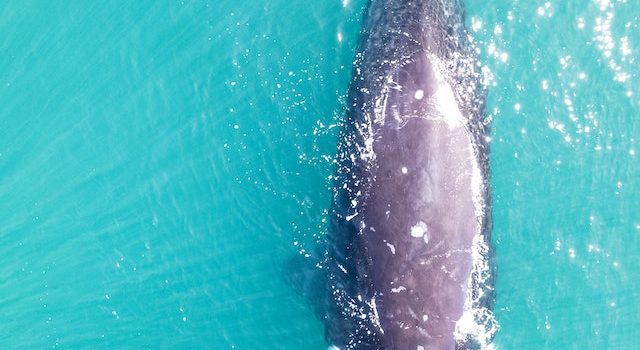
Bowhead whales offer valuable insights into understanding cancer resistance, and paying attention to their unique biology can greatly benefit cancer research. Here are some reasons why bowhead whales deserve our attention in the context of understanding cancer resistance:
1. Exceptional Longevity: Bowhead whales have an extraordinarily long lifespan, exceeding 200 years. This longevity is notable because, unlike humans and many other mammals, they do not show an increased incidence of cancer with age. By studying the mechanisms that allow bowhead whales to maintain cellular health and prevent cancer over such extended periods, we can gain valuable insights into promoting healthy aging and reducing cancer risk in humans.
2. Efficient DNA Repair: Bowhead whales possess highly efficient DNA repair mechanisms that help maintain genomic stability and minimize the accumulation of cancer-causing mutations. Understanding these mechanisms and the specific genes involved can inform strategies to enhance DNA repair and prevent the development of cancer in humans.
3. Robust Tumor Suppression: Bowhead whales exhibit heightened tumor suppression abilities, which can detect and eliminate abnormal cells before they progress into cancer. By studying the molecular pathways and genes associated with their enhanced tumor suppression, we can identify potential targets for developing therapeutic interventions that mimic or enhance these mechanisms in human cells.
4. Unique Immune Responses: Bowhead whales have a powerful immune system with exceptional capabilities in recognizing and eliminating cancer cells. Their immune cells, such as natural killer cells, exhibit heightened activity and specificity in targeting abnormal cells. Understanding the mechanisms behind these immune responses can guide the development of innovative immunotherapies for cancer treatment in humans.
5. Comparative Genomics: Comparative genomics studies comparing the bowhead whale genome to those of other mammals, including humans, have revealed unique genetic variations associated with cancer resistance. These genetic differences provide valuable clues about the molecular pathways and mechanisms involved in preventing cancer. Targeting these pathways in human cancer treatments may lead to improved outcomes.
6. Environmental Adaptations: Bowhead whales inhabit extreme environments, such as cold Arctic waters, and are exposed to various environmental stressors. Studying their adaptations to these conditions may provide insights into additional protective mechanisms against cancer. Understanding the interplay between environmental factors and cancer resistance can help identify potential strategies to mitigate cancer risk in humans.
By paying attention to bowhead whales and studying their biology, we expand our knowledge of cancer resistance mechanisms beyond traditional model organisms. The insights gained from bowhead whale research can inspire new avenues of investigation, guide the development of innovative cancer prevention and treatment strategies, and provide hope for improving human health and well-being.










